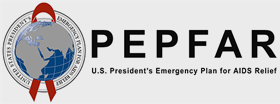Thanks to the leadership of Malawi’s Ministry of Health and the support of USAID, GHSC-PSM, and other partners, unmet need for family planning has decreased from 17 percent in 2019 to 13.3 percent in 2022.
While the availability of family planning commodities is essential, other barriers persist in Malawi. Deep-rooted suspicions and resistance towards family planning in certain pockets of the community, coupled with some husbands' reluctance to permit its practice, create challenges. However, many women opt for injectable contraceptives due to their discreet nature and the ability to be administered every three months without leaving any trace.
There is a good reason why Tuesday is the day for family planning at the health facility. “Tuesday is a market day at the trading center. The women tell their husbands they are going to the market, when in fact, they are coming here for their Depo-Provera jab.” Chiwona explains. “They can return home without their husbands knowing or suspecting they have been injected. They leave their health books here and they will just be informed of their next appointment.” She says her health workers feel a huge sense of relief seeing the women in their community go home with the means to prevent an unplanned pregnancy.





